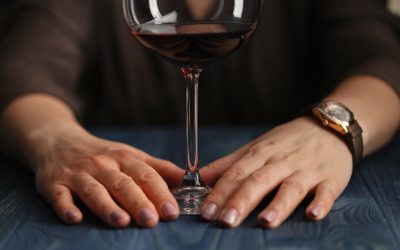The Cambridge and Somerville Program for Alcoholism Rehabilitation (CASPAR), located in Somerville, Massachusetts, offers a range of prevention and intervention services, including programs for COA’s. Sessions are conducted by adult staff in school and community settings and by trained peer leaders in after-school groups in junior high schools (Davis et al. 1994). Basic groups provide general information about alcohol-related problems and are open to any child who wishes to attend. COA-specific groups concentrate on alcoholism in the family and strategies for coping. Many people need detox services, alcohol addiction treatment, peer support (from groups like Alcoholics Anonymous), social support, and other external resources to find long-term sobriety.
Addiction and Relapse
This thinking is deceptive because following any period of sobriety, if a person starts to use substances again, the addiction gets reactivated in the brain, and the cycle of addiction starts all over. Addiction is a complex illness that causes lasting changes in brain chemistry and functioning. These changes do not only make a person crave their addiction, they can lead to emotional, psychological, and https://missouridigest.com/top-5-advantages-of-staying-in-a-sober-living-house/ physiological dependence, affecting every aspect of a person’s life. Addicts find that they’re trapped in a complex cycle of addiction from which breaking out seems impossible. However, various treatment options are available to help people on the path to recovery from substance use disorders. Detoxification is the first step in the journey to recovery, focusing on clearing the body of substances.
Why Do People Relapse?
Remove any reminders of your addiction from your home and workplace. For example, separate from those who would encourage you to be involved with the object of your addiction (drug, alcohol, or behavior). If you are trying to quit drinking, get rid of any alcohol, bottle openers, wine glasses, and corkscrews.
The Power of Rehab
Many COA’s who appear to be coping well are actually in a self-protective state of denial. Group facilitators should exercise patience and sensitivity as children adjust to their changing awareness about their parents’ drinking. Group leaders should also recognize that COA’s may become overly dependent on them and should be sensitive to the feelings of abandonment that children may experience when the group terminates.
Scheme to safeguard young people during TT expands
Learn more about the levels of care offered at American Addiction Centers’ nationwide treatment centers. ” self-assessment below if you think you or someone you love might be struggling with a substance use disorder (SUD). The evaluation consists of 11 yes or no questions that are intended to be used as an informational tool to assess the severity and probability of an SUD. The test is free, confidential, and no personal information is needed to receive the result.
Personal-Social Competencies
But it’s possible if individuals understand the nature of addiction and the stages it goes through. As tolerance builds up, individuals may increase their drug use to get the initial effect. This can lead to physical and psychological dependence without them realizing it. People who are new to a particular social circle might feel pressured to fit in. Unfortunately, drug use can become a regular part of their daily life during this time. Addiction can feel like a never-ending spiral, but it doesn’t have to be.

Dependence reflects significant changes in brain chemistry and function, making it extremely challenging to stop using the substance or engaging in the behavior without help. Tolerance means needing more of the substance or more intense involvement in the behavior to achieve the same effect, which often leads to increased use and riskier behavior. Prescription, legal, and recreational substances—like Top 5 Advantages of Staying in a Sober Living House alcohol—may be used without a person necessarily being in the cycle of addiction. Many individuals who are able to use alcohol occasionally without becoming addicted do not move into experimentation after their initial exposure. These consequences extend beyond physical and emotional health impacts. It can affect various aspects of life, including relationships, careers, and self-esteem.

- Research shows that the following steps can help you move toward your recovery goals.
- Your aim should be to be pòsitive about the negative, and comfortable with the uncomfortable.
- This addiction can either be to alcohol, drugs, cigarettes, or certain behaviors such as gambling, sporadic shopping, and watching pornographic content.
- I have worked with individuals who have dealt with the horrors of addiction for the past 15 years.
- Test yourself to come up with 3 positive thoughts for each negative thought.
Most individuals may be anxious or irritable for a short length of time, perhaps resulting from an upcoming event or situation. When there is constant anxiousness or irritability from seemingly all situations, it may be a clue an addiction is behind the change in persona. Even after detoxification treatments have concluded, addiction and relapse can have sufferers seeking dosage levels similar to those of their last use. This presents a dangerous situation where a clean body may overdose on the higher dosage amount since the tolerance has subsided after treatment. Because relapse is an expected process when recovering from an addiction, you shouldn’t feel ashamed or guilty about having an accountability partner.
- According to onetonline.org, substance abuse and behavioral disorder counselors can earn a median salary of $52,190 a year in Texas.
- Some people remain in this phase because they don’t have sufficient information about addictive behavior.
- Even though it can be a challenge, the benefits of overcoming addiction far outweigh any perceived benefits of continuing substance use.
- Although there are several types of intervention programs, some strategies are common to most programs.
- Improved research methods can guide intervention to prevent adverse outcomes from developing.
- An addictive cycle includes a range of bad habits, which means that breaking a cycle ill require breaking each of the habits involved in that cycle.
- In a nutshell, your brain is the best reflection of “you.” It is everything you think and feel, and who you are.
The DSM 5 acknowledges that people are different, and not all are automatically predisposed to addiction or equally vulnerable to developing SUDs. Furthermore, some people have far lower levels of self-control that predispose them to develop problems if they’re exposed to addictive drugs. Not all individuals who use prescription medications, drink alcohol, or partake in drug use for the first time intend on becoming addicted.
